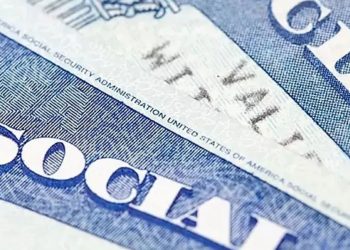Legal representatives for 252 Venezuelans deported under the Trump administration and currently detained in El Salvador for two months, have asserted that these individuals are enduring both physical and psychological “torture.”
A law firm commissioned by the Venezuelan government reported its inability to access the migrants confined within a large prison facility. The lawyers are attempting to obtain “proof of life” for their clients but have encountered significant resistance from President Nayib Bukele’s government and the judicial system in El Salvador.
On March 24, Grupo Ortega submitted a habeas corpus petition to the supreme court to challenge what they describe as the “illegal detention” of these Venezuelans; however, they are still awaiting a decision on this matter.
In a recent interview with Agence France-Presse, attorney Salvador Ríos criticized the treatment of the migrants, who were observed dressed in prison attire, restrained, and with shaved heads. He characterized their situation as torture, both physically and mentally.
The lawyers sent a formal request to Bukele in early May seeking permission to visit the detainees, yet they have received no response thus far.
Attempts by AFP to obtain comments from the Salvadoran presidency regarding this situation and the ongoing efforts of the lawyers have gone unanswered.
Félix Ulloa, the vice president of El Salvador, stated in an interview with French media outlet Le Grand Continent that his government is merely providing what he referred to as a “service that we could call prison accommodation.”
The Trump administration has compensated Bukele’s government with millions of dollars to detain migrants whom it labels as criminals and gang affiliates. In March, Trump invoked rarely used wartime legislation to transfer migrants to El Salvador without any judicial hearing, claiming they were associated with the Tren de Aragua gang—an allegation denied by their families and legal counsel.
The Venezuelan detainees, along with 36 Salvadoran migrants who were also deported, are being held in a high-security prison constructed by Bukele to accommodate thousands of suspects arrested during his extensive anti-gang operations.
Ríos highlighted the severity of the situation, noting that visual documentation of the Venezuelans entering the Cecot mega-prison in restraints underscores the brutality involved. He emphasized that their suffering is not solely physical but extends to mental anguish as well.
In their correspondence to Bukele, the lawyers requested authorization to conduct interviews with the prisoners, either face-to-face or virtually, which could serve as a means to establish “proof of life.” They also urged Bukele to disclose the identities of the 252 Venezuelans, a request that has not been fulfilled by Washington either.
Among those affected is Kilmar Ábrego García, a Salvadoran migrant who was initially detained at Cecot but was transferred to a prison farm in April after being deported due to what the United States acknowledged was an administrative mistake. Another individual identified only as “Cristian” was also erroneously expelled.
In both instances, US judges unsuccessfully directed the Trump administration to facilitate their return.
Volker Türk, the UN human rights chief, raised serious concerns this week about the implications for various fundamental rights under both US and international law. He noted that families affected have expressed feelings of utter helplessness regarding their loved ones being labeled and treated as violent criminals or even terrorists without any legitimate legal adjudication.
Isael Guerrero, another attorney from Grupo Ortega, described the detentions as entirely unlawful because there are no legal proceedings against the Venezuelans in El Salvador. Jaime Ortega, head of the firm, affirmed that all individuals in question are “100% migrants,” emphasizing that none are facing prosecution in the United States for alleged affiliations with the Tren de Aragua gang.
The current situation of the Venezuelan detainees rests solely in Bukele’s hands since “the expulsion completely









